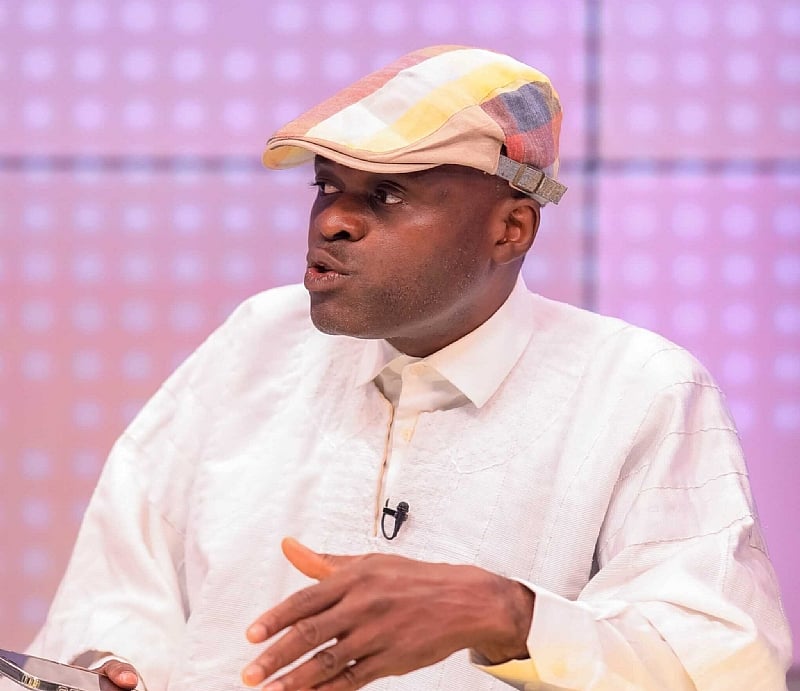The unfolding narrative surrounding the former Director-General of the National Signal Bureau (NSB), Kwabena Adu-Boahene, presents a complex interplay of financial transactions, political maneuvering, and legal interpretations. While Adu-Boahene’s recent revelations shed light on certain aspects of the NSB’s operations, particularly concerning the allocation of funds for seemingly unrelated activities, they fail to directly address the core accusations of misappropriation leveled against him. The public, while gaining insight into the workings of the NSB, is left grappling with the intricate web of justifications presented by Adu-Boahene and the potentially damning implications for both the former director-general and the political landscape of Ghana.
Central to the controversy is the disbursement of funds from the NSB’s Special Operations budget. Adu-Boahene claims that a significant portion of this budget, GHS 960,000, was allocated to members of Parliament’s Defence and Interior Committee to facilitate the passage of the National Signals Bureau Act. This revelation raises immediate concerns about potential impropriety and the blurring of lines between legislative processes and financial inducements. While Adu-Boahene portrays these payments as necessary for the efficient functioning of the government, the optics of such transactions are undeniably problematic, casting a shadow over the legitimacy of the Act’s passage and raising questions about the influence of money in political decision-making.
Further complicating the narrative are Adu-Boahene’s claims regarding the use of Special Operations funds for what appear to be politically charged activities. The allocation of GHS 5,135,000 for “Election Special Ops – Logistics” in December 2024, with a notation referencing a “Special Aide to President Elect,” suggests a potential intertwining of national security operations with partisan political endeavors. This raises serious concerns about the neutrality of the NSB and its potential involvement in activities that could be perceived as favoring a particular political faction. The allocation of funds for “Human Security Ops – Generators,” overseen by the “National Security Coordinator,” while seemingly less controversial on the surface, adds another layer of complexity to the already opaque financial dealings of the NSB.
While Adu-Boahene insists on the legitimacy of these expenditures, his assertions are countered by the ongoing investigations and the seemingly damning evidence presented by Dr. Ayine. The crux of the accusations against Adu-Boahene centers on the traceability of funds from the NSB account to his private company accounts and subsequently to Mayfair Properties. This financial trail, according to Dr. Ayine, establishes a clear link between the missing funds and Adu-Boahene’s personal financial interests. Adu-Boahene’s explanations, focusing on the broader allocation of Special Operations funds, fail to address this direct connection and, therefore, do not constitute a viable defense against the specific charges of misappropriation.
The public response to these revelations has been understandably mixed. While some view Adu-Boahene’s disclosures as a diversionary tactic, a “red herring” designed to deflect attention from the core accusations, others recognize the value of these revelations in shedding light on the potential misuse of public funds. The revelations, regardless of their intent, paint a troubling picture of the financial practices within the NSB and raise serious questions about the oversight and accountability mechanisms in place. The public’s long-held concerns about the misuse of public funds by politicians seem to be validated by these revelations, adding fuel to the ongoing debate about transparency and accountability in government.
Ultimately, the legal battle revolves around the interpretation of evidence and the establishment of a direct link between Adu-Boahene’s actions and the misappropriation of funds. While his explanations provide context and insight into the operations of the NSB, they do not directly refute the evidence presented by Dr. Ayine. The ongoing investigations and the ensuing legal proceedings will determine the veracity of the claims and counterclaims, and ultimately decide the fate of Adu-Boahene. However, regardless of the legal outcome, the revelations have undeniably tarnished the image of the NSB and raised serious concerns about the integrity of its financial practices and the potential for political interference.














